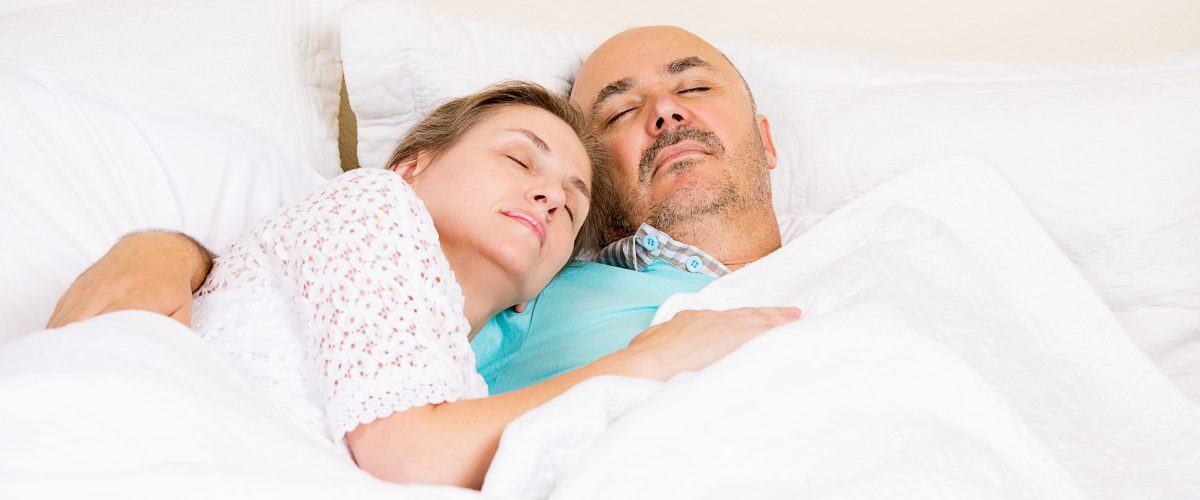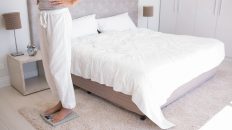By Virginia Gurley, MD, MPH
MB (Marc Braman, MD, MPH):
Hi, I’m Dr. Marc Braman, here with one of our LifestyleFacts’ experts Dr. Virginia Gurley. Welcome Dr. Gurley!
VG (Virginia Gurley, MD, MPH):
Thank you, Dr. Braman, glad to be with you today.
MB:
And we are talking today about an introduction to sleep, the topic itself. So, sleep doesn’t really seem that important. I mean, in medical school they taught us by example that sleep really didn’t matter. I remember the neurosurgery residents thinking it was hilarious that the chief neurosurgery resident kept falling asleep mid sentence in the middle of his dictations. Our attitude seems to be just drink more coffee and everything is OK. So what does sleep actually do for us? Why is it important?
VG:
Well, sleep is really when your body and mind takes care of all of it’s housekeeping processes – all repairing, healing and building processes happen during sleep, so it’s super important.
MB:
Ok, so it affects us physically, does sleep affect us mentally or emotionally? When we’re tired we tend to be grumpy, but is there anything beyond that?
VG:
Yeah, sleep affects every aspect of our mental and emotional health – including how well we cope with stress, our risk for mental disorders like depression and anxiety, how well we learn and the brain’s ability to turn information into memory, and even how well we get along with other people.
MB:
Wow, so what medical problems could be at least partially caused by sleep issues?
VG:
Here again sleep has such a huge effect on our health. Physically, it’s connected with problems like high blood pressure and heart attacks, and problems with metabolism like diabetes and overweight, and inflammatory diseases and even cancer, and mental emotional diseases like depression, anxiety disorders, and attention deficits are also related to sleep disorders.
MB:
Wow, so it sounds like it’s a pretty big deal. Do we know how large the effect of sleep is on us and our conditions? I mean, compared to other potential causes or medications, what kind of magnitude does sleep have or do we even know?
VG:
Our understanding of how sleep affects health and contributes to diseases is actually fairly new, and the studies to compare sleep to other treatments just haven’t been done yet. But we do know that the effect of sleep on our health and on disease processes is quite pronounced. It’s profound because it’s key to all our healing and repair processes.
MB:
Okay, do we know how many people have these kinds of problems? I mean, how common are these issues?
VG:
Well it’s hard to say, but it’s estimated that at least 50 million American adults have repeated problems getting restful sleep, and there’s also a growing recognition that many children are affected by on-going, recurring problems with sleep disturbance. This isn’t just like what some people experience now and again with a night here and a night there of difficulty sleeping. This is ongoing chronic sleep problems.
MB:
Ok, so this a huge problem. We probably are just starting to recognize it. It’s probably even bigger. What has happened that it’s now such a big issue?
VG:
Well one the biggest sources of the problem is that our relationship with sunlight and night time darkness has changed completely. We get too much light at night and not enough light during the day, so our body’s schedule of healing processes have gotten out of sync. And then also the lack of daily physical activity which used to often happen outside is also contributing to the problem.
MB:
Ok, so what I’m hearing is we’re basically creating this problem, which then begs the question can we use sleep as part of our treatment? Can we simply fix what is causing the problem?
VG:
The short answer is yes. And how we use sleep to improve health and treat diseases depends on what you’re treating.
MB:
Ok, great. So the good news thus far is that we actually have a lot of control over our health destiny and we are really not dependent on just a pill to fix us. Sleep is medicine. And we have the ability to treat the cause. So here’s your prescription for the day. Go to bed! Get some good sleep! Thank you, Dr. Gurley.
VG:
Thank you, Dr. Braman.
Healthy clocks, healthy body, healthy mind. Reddy AB, O’Neill JS. Trends in Cell Biology. 2010;20(1):36-44. doi:10.1016/j.tcb.2009.10.005.
Protecting the Melatonin Rhythm through Circadian Healthy Light Exposure. Bonmati-Carrion MA, Arguelles-Prieto R, Martinez-Madrid MJ, et al. Slominski A, ed. International Journal of Molecular Sciences. 2014;15(12):23448-23500. doi:10.3390/ijms151223448.
How to fix a broken clock. Schroeder AM, Colwell CS. Trends in pharmacological sciences. 2013;34(11):10.1016/j.tips.2013.09.002. doi:10.1016/j.tips.2013.09.002.





